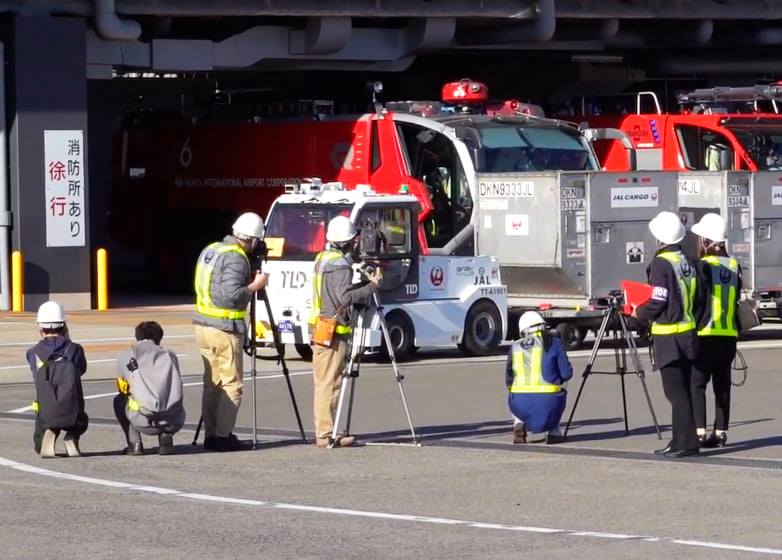News
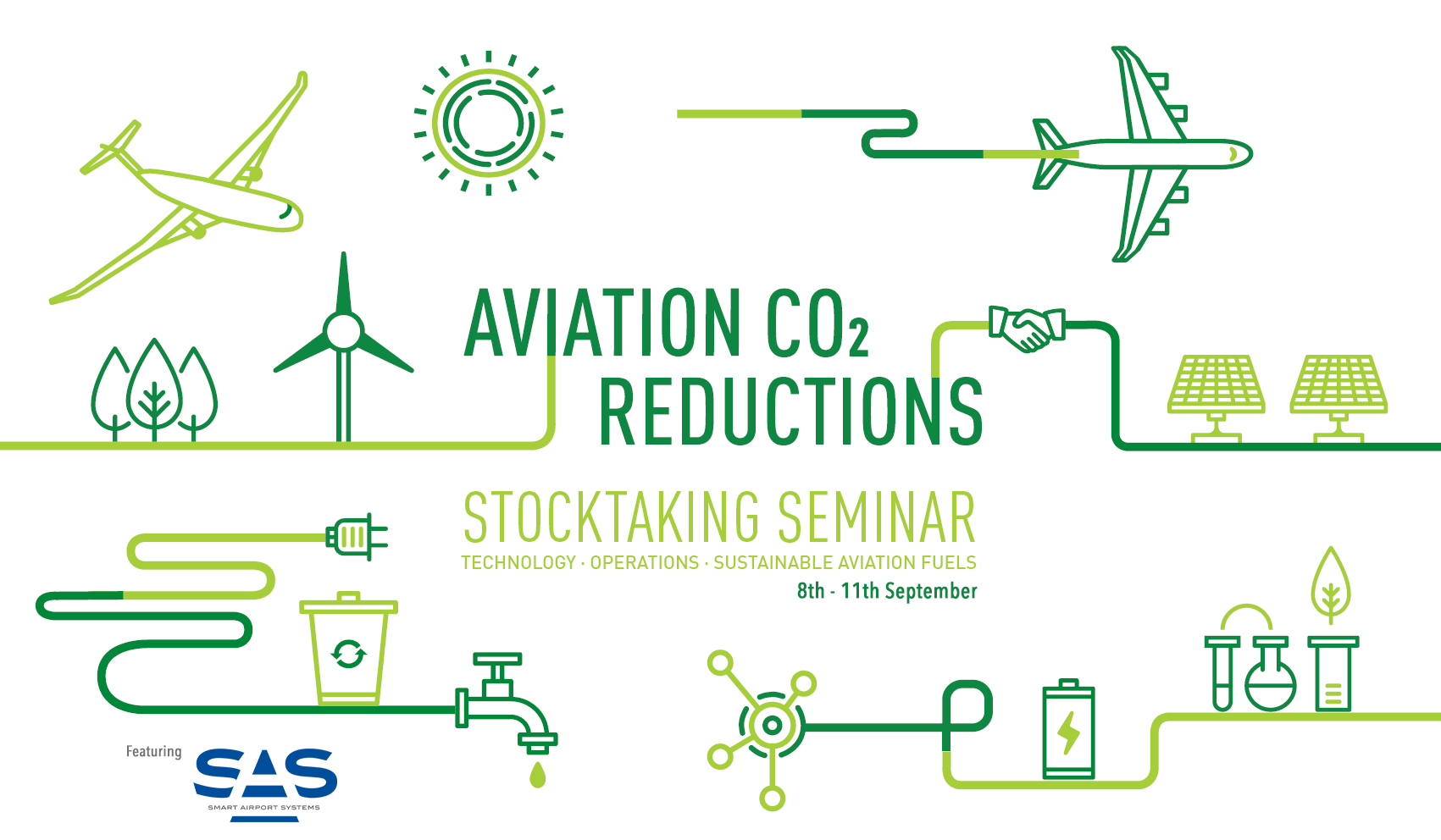 SAS Participate in ICAO Aviation Emission Reduction Seminar
SAS Participate in ICAO Aviation Emission Reduction Seminar
The ICAO – International Civil Aviation Organization are presenting their Stocktaking Seminar on aviation in-sector CO2 emissions reductions, and will be held virtually from 8th-11th September 2020.
The 2020 ICAO Stocktaking Seminar will consider innovative solutions to unlock current and future CO2 aviation emissions reduction potentials. It will cover three areas for in-sector reductions:
Technology
Operations
Sustainable Aviation Fuels
Additionally, it will expand the scope of the stocktaking process by covering in-sector emissions reduction opportunities from aircraft technology improvements, innovations and operational improvements.
Smart Airport Systems will be contributing to the seminar with a presentation on our sustainable aviation solutions designed to reduce noise and air pollution whilst increasing operational efficiencies.
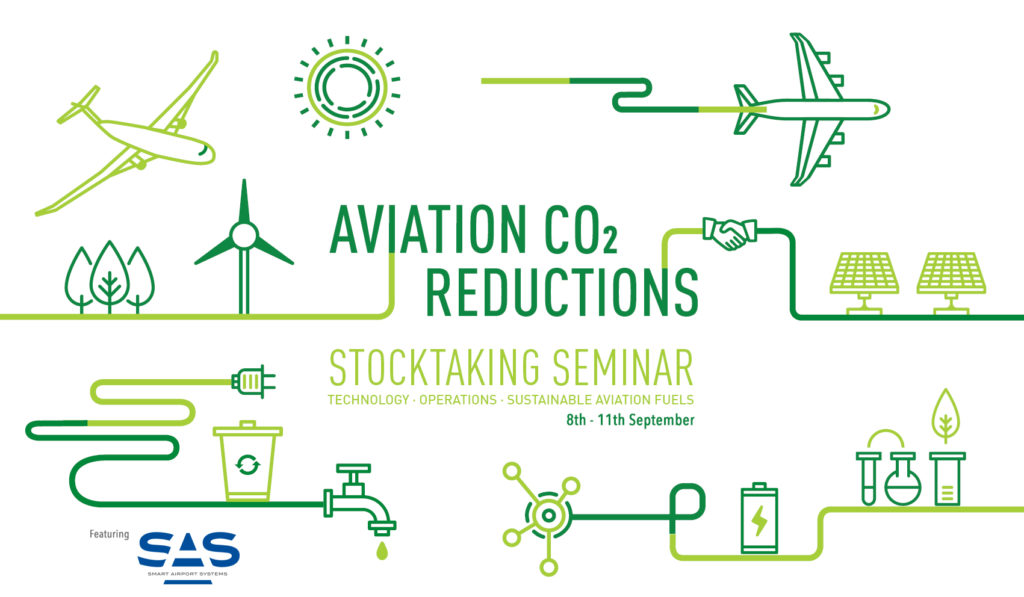
Monday 15th July saw ‘TractEasy’ win the IFOY ‘AGV & Intralogistics Robot’ award.
The mission of the IFOY AWARD is to identify and recognise the year’s best intralogistic equipment and intralogistics solutions.
‘TractEasy’, a collaboration between TLD / Smart Airport Systems / EasyMile, is a driverless tow-tractor that not only facilitates a significant increase in productivity, efficiency, labour and maintenance savings but also allows enhanced safety and process compliances.
The TractEasy® mission is to move cargo in an autonomous manner, under the supervision of dedicated fleet manager software, from terminal to terminal, or terminal to aircraft.
Well done to all those involved in this latest victory for electric GSE and the airport environment – a true win/win!
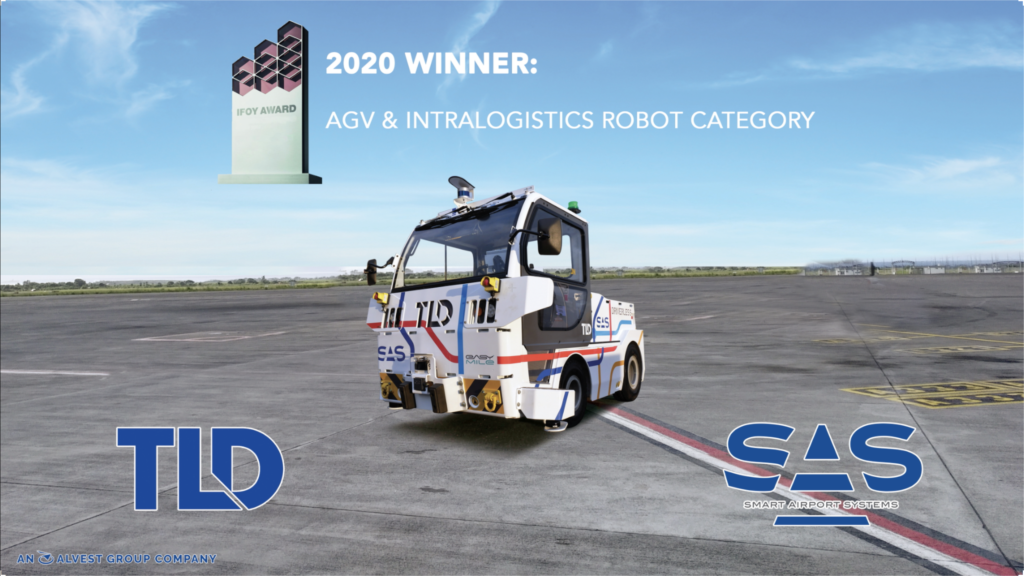
Today Amsterdam Airport Schiphol and Smart Airport Systems announce it’s trial for sustainable taxiing at Schiphol airport in cooperation with the partners Air Traffic Control Netherlands (LVNL), the Ministry of I&W, Corendon Dutch Airlines, KLM, Transavia, EasyJet and handlers Dnata and KLM Ground Services.
The technology behind this trial, the TaxiBot, is provided by Smart Airport Systems (SAS), a sister company to the prominent designer and manufacturer of airport ground support equipment TLD and IAI (Israël Aerospace Industry).
The SAS mission is to provide innovative sustainable solutions for airlines and airports to help them reduce CO2 and NOx emissions, generate fuel savings, and increase the operational efficiencies at airports. For this SAS has developed several solutions that are
available today and bring significant emission reduction.
Maxime Mahieu, CEO of Smart Airport Systems commented: “We are extremely pleased with this test of sustainable taxiing in cooperation with one of the world’s most innovative airports. We are impressed by Schiphol’s motivation which reflects in quality of the partnership they have created. All key stakeholders are aligned to show that SAS existing solutions can bring significant environmental improvements today”.
Hassan Charaf, Head of Innovation at the Royal Schiphol Group, commented:
“This study fits with our ambition to be the most sustainable airport in the world. I am proud that together with our partners we are exploring what sustainable taxiing at Schiphol can mean”.
The TaxiBot trial is part of an on-going feasibility study on sustainable taxiing at Schiphol Airport. Additional criteria will include how sustainable taxiing can be incorporated into daily operations, whether it can be achieved extensively across the airport and implementation timescales.
The ’TaxiBot’ is a semi-robotic tow vehicle developed by TLD and IAI, fully controlled by the Aircraft pilot when it tows the aircraft from terminal to runway, and back, without the use of the aircrafts engines.
The hybrid TaxiBot is powered by a combination of electric and diesel engines that allow it to consume 95% less fuel during taxiing than the more commonly used aircraft engines. The TaxiBot is already in operation in India in both Delhi and Bangalore airports.
At Schiphol Airport aircraft engines are used on average 14 minutes to taxi departing aircraft and 9 minutes for arriving aircraft.
As aircraft engines still require spooling to their optimum operating temperature prior to take off, the saving brought by the TaxiBot are estimated to be between 50% and 85% of the average fuel consumption normally associated with the taxiing mission.
There are also a number additional benefits including – a reduction in noise pollution, CO2 and NOx emissions and foreign object debris whilst also delivering huge environmental advantages.
TaxiBot is also recognized, since February 2020, as an official partner of the Solar Impulse Efficient Solution program, a certification that applies to products, processes and services which combine economic profitability and environmental sustainability.
The trial is set to run until the end of June after which the study will conclude in Autumn 2020.
Watch the video here – https://www.youtube.com/watch?v=rCq3ktgPc1U
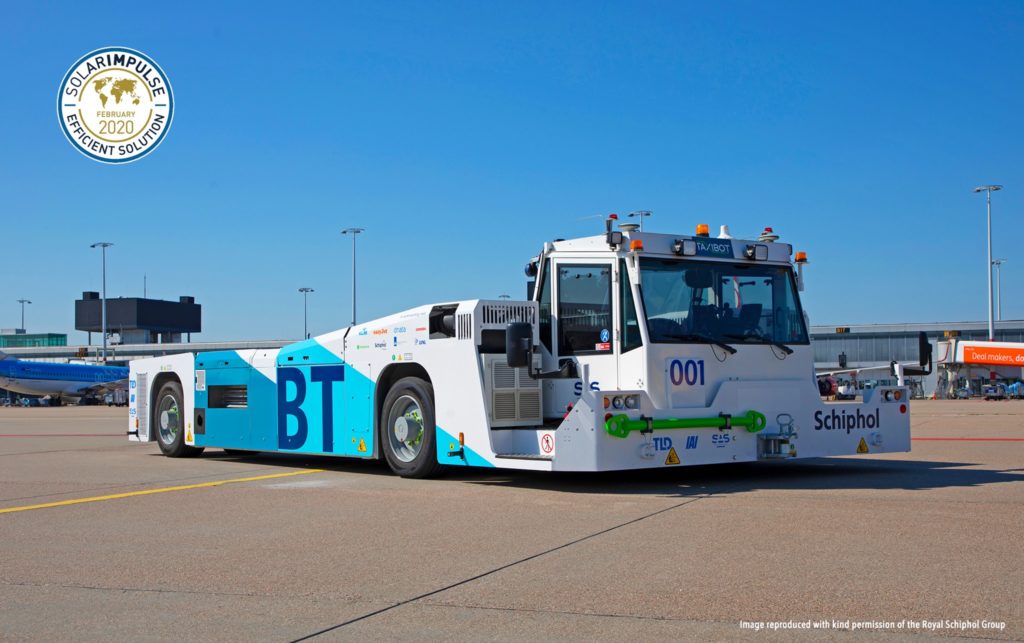
In cooperation with JCAB (Japanese Civil Aviation Bureau) and NAA (Narita International Airport Corporation), Japan Airlines (JAL) invited the country’s press to witness the implementation of POC (proof of concept) with TLD ‘TractEasy’ autonomous baggage tractor provided by Smart Airport Systems (SAS).
SAS is the first company to deploy a driverless ready solution into a live airport environment to perform real baggage transfer assignments.
The AV will operate at Level 3 and Level 4 under the supervision of JAL operator. JAL will use the TractEasy on 3 missions, originating from Terminal 2, to transfer customers baggage’s from sorting area to the aircraft stand.
The original article is available to download here – https://www.aviationwire.jp/archives/189772
